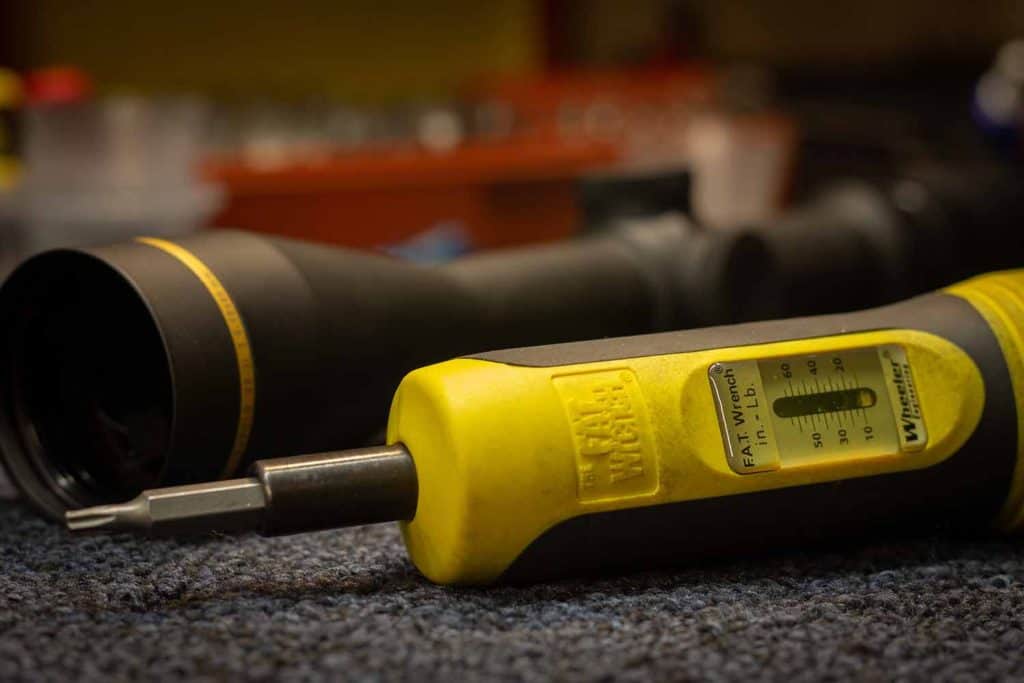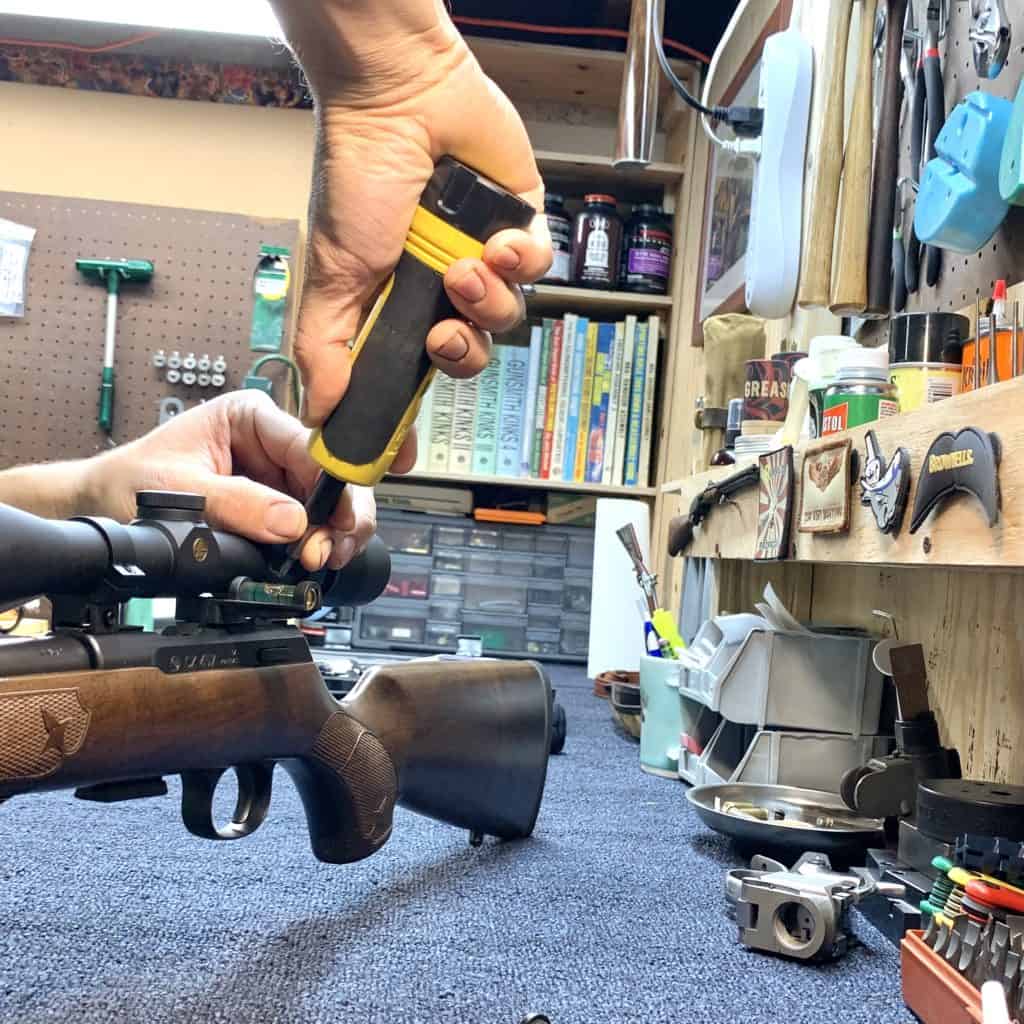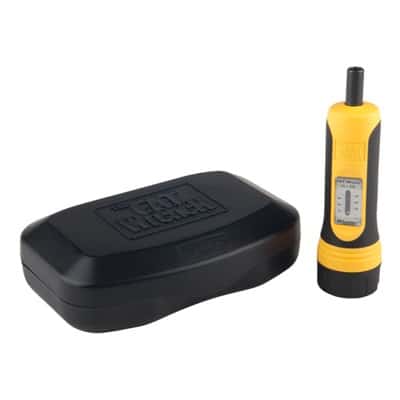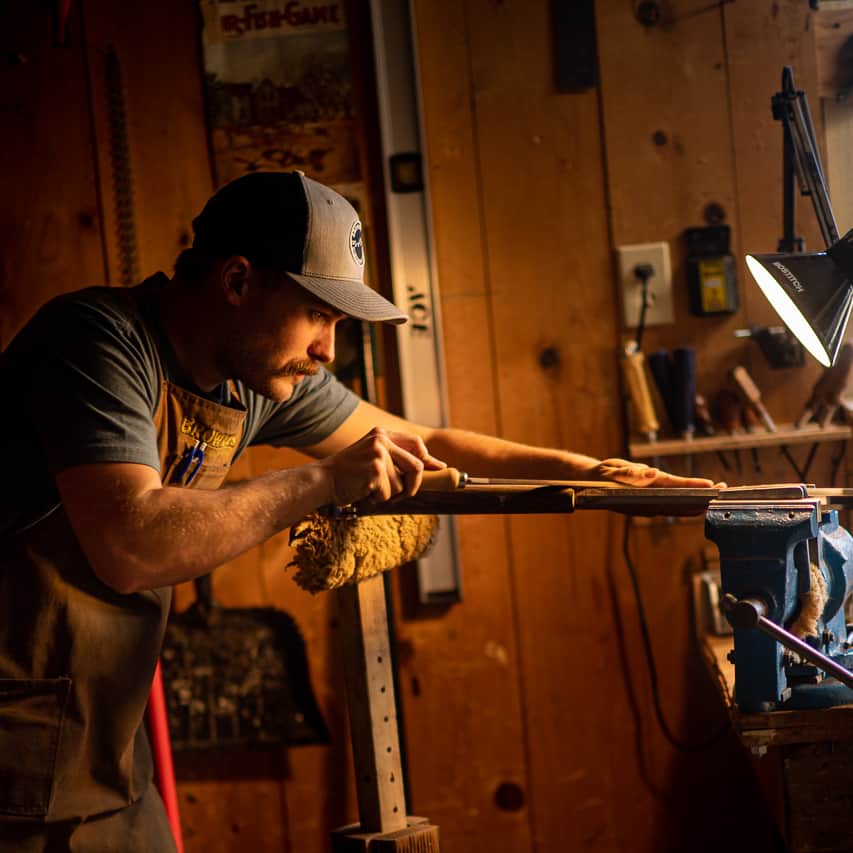
A torque wrench is a handy tool on the gunsmith’s bench and tackles many jobs. However, they are mainly used to mount scopes properly and consistently torque action screws.
Affiliate Disclosure: This article may contain affiliate links. When you use these links, I earn a small commission from each sale generated at no cost to you. This commission helps me continue to put out free content. I work a full-time job that I am very happy with; therefore, I don’t need this commission and am not obligated to speak highly of any product. Everything written is my own opinion: the good, the bad, and the ugly.
What is Torque?
Before diving into torque wrenches, let’s get a basic understanding of what torque is.
Torque is defined as the measure of a force’s tendency to produce torsion or rotation about an axis, equal to the product of the force vector and the radius vector from the axis of rotation to the point of application of the force; the moment of a force.
Put simply, it is how tight your screws are, or barrel nut is. There are many different formulas out there to calculate the amount of torque a screw can take based on a screw size, pitch, and material. However, none of that is essential for this discussion, as we are more worried about over-torquing and repeatability.
What to Look for in a Torque Wrench
The standard torque wrenches used by your local auto mechanic are not the same as what you need when working on firearms. You need a wrench that is adjustable down to the inch-lb for general work and one that measures in ft-lbs for barrel work. You will want the wrench to cover between 15-65 in-lbs of torque for general work. That will cover most of the scope mountings and action screw settings that you will use.
The ft-lbs torque wrench is only for torquing on barrels and barrel nuts, like on the AR-15. An automotive-type will work here as they also tend to measure in ft-lbs. Most AR Armorer’s wrenches like this one made by Magpul will have a 1/2″ square drive for use with a torque wrench. It is recommended that the AR barrel nut be torqued to 30 ft-lbs; however, this torque will be dictated by the alignment of the slots for the gas tube.
Use coupon code KTG10 to get 10% off your order of $150 or more at Brownells.
Ideally, you want a torque wrench that accepts 1/4″ hex bits, as these are the most common type of screwdriver bit used in gunsmithing. This will allow you to use the proper fitting bit for every application, reducing the chance of marring up a screw.

Uses on the Gunsmith’s Bench
The uses of a torque wrench on the gunsmith’s bench are numerous. Most people will find them paying for themselves when used for mounting scope bases and rings. While they are not inexpensive, a stripped-out scope ring or receiver isn’t cheap either. The screws used for mounting scopes are generally pretty small and have a fine thread that is easily stripped out. The potential problem multiplies when aluminum is involved.
The first time you use a torque wrench when mounting rings and bases on a rifle, you will realize you have been overtightening them up to that point.
A torque wrench is also very useful when getting the most accuracy out of a rifle platform. Most rifles tend to have a sweet spot when it comes to the torque setting of their action screws. While it may not have a severe impact on your accuracy, if your rifle is adequately bedded with pillars, it won’t hurt. After all, accuracy is consistency, consistency down to action screw torque. I have personally tested this and have found the results to be shocking. You can read the full text below.
Action Screw Torque: The Pursuit of Rimfire Accuracy Part Three
Lastly, a torque wrench is only designed to be used one way. That means it should never be used to loosen or remove a screw. This can damage the wrench and cause a lot of issues down the road.
Applicable Torque Settings
The torque settings used below will give you a good guideline to go by. However, they may vary slightly depending on the manufacturer’s specs.
| Screw Size | Common Uses | Torque (Inch-lbs) |
| 6-32 | Scope Base Mounts | 18-20 |
| 6-40 | Scope Base Mounts | 18-20 |
| 6-48 | Scope Base Mounts | 18-20 |
| 8-32 | Scope Rings | 28-30 |
| 8-36 | Scope Rings | 28-30 |
| 8-40 | Scope rings | 28-30 |
| 10-24 | Scope Base Windage Screws | 40-45 |
| 10-32 | Scope Base Windage Screws | 40-45 |
These settings are suggestions based on using a lubricated screw; unlubricated screws require more torque to maintain consistency. A light coat of oil or Loctite is considered lubricated.
The guys over at the precision rifle blog are a good reference for action screw torque based on the action type. That article is located here.
Torque Wrench Storage
Torque wrenches use an internal spring to apply the correct pressure on each use. Therefore, they should always be stored at the lowest value to relieve that spring pressure. This will save on the wear and tear of the tool and make it last a long time.
The One You Need
Wheeler FAT Wrench – 59.95
This torque wrench is the only one that I have experience with. It has performed very well for me so far, and I have no reason to try another one. The handle has an excellent grip and keeps your hands from slipping even when they are covered in Hoppe’s.
1/4″ Drive
Accuracy: +/- 2 In-lbs
Torque Range: 10-65 In-lbs
Includes ten commonly used bits for scope mounting.


Written by: Kurt Martonik
Kurt is a Gunsmith, Reloader, Hunter, and Outdoorsman. He grew up in Elk County, Pennsylvania, where he became obsessed with the world of firearms. Following high school, Kurt enlisted in the United States Air Force as a Boom Operator, where he eventually rose to the position of Instructor. After his military service, he attended the Colorado School of Trades(CST) in Lakewood, CO for gunsmithing. Following graduation, he accepted a job at C. Sharps Arms in Montana, where he worked as a full time stockmaker and gunsmith.